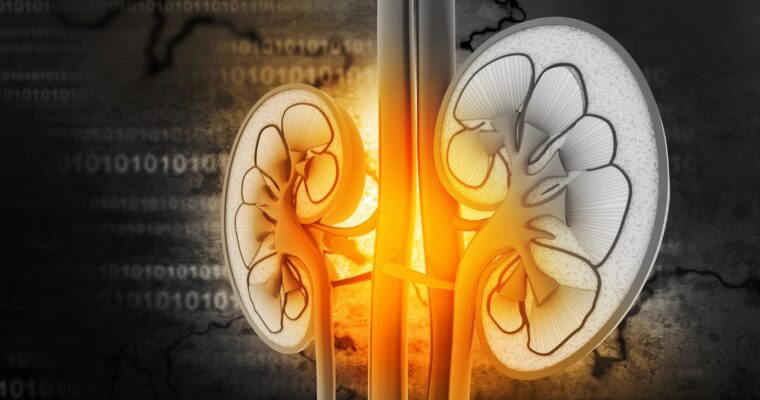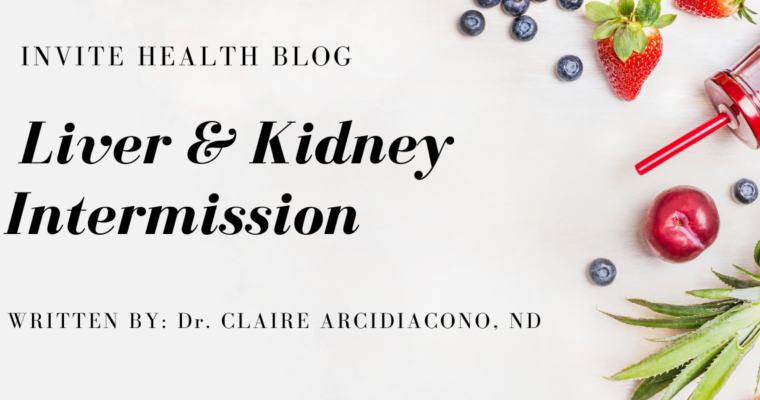Written by Dr.Claire Arcidiacono, ND
For further questions or concerns email me at carcidiacono@invitehealth.com

Last week we started talking about lupus and its repercussions as an autoimmune disease. This week we will continue this fascinating topic. To begin our topic we will start with some risk factors that put you at a higher risk of developing lupus. Let’s start with family history, while lupus does appear to run in families, no single gene has been found as the “cause” of lupus. Rather than one gene causing lupus it appears as though multiple genes activated together along with environmental factors leads to lupus developing. (1) Now as I said in my last blog lupus does affect more women than men. In fact, for every man diagnosed with lupus, 9 women are diagnosed! One theory for this difference is the naturally higher levels of estrogen and lower levels of androgens that occurs in women. Other theories place this discrepancy on the gene differences of the X and Y chromosomes. † (2)
Lupus is as I’ve said an autoimmune disease and thus anything that increases the risk of developing an autoimmune disease will increase the risk of developing lupus. Leaky gut has been found to have an association with quite a few autoimmune diseases such as lupus. Having an overgrowth of bad bacteria, also known as; gut dysbiosis, is a risk factor for developing lupus both because it increases the chance of developing leaky gut and because the bad bacteria themselves are a risk factor for lupus. (3) An example of a specific bacteria that is linked to lupus is Epstein Barr virus. † (4)
Food allergies and sensitivities have also been found in studies to increase the risk of autoimmune disorders such as lupus. (5) An example of a food allergy that is associated with lupus is celiac disease. It is interesting to note that not everyone with a sensitivity to gluten has celiac disease and thus while an individual may test negative for celiac, they may want to try an elimination diet and eliminate gluten as a test just in case gluten is making their condition worse. † (6)
In addition to food allergies there are other dietary risk factors for autoimmune conditions. The standard American diet or typical western diet has been found in studies to be a huge risk factor for developing an autoimmune disease. † (7)
Other risk factors for lupus include smoking, exposure to certain chemicals and last but not least being obese or overweight. † (4)
Lupus is usually diagnosed by a combination of blood work, physical exam and a review of symptoms with your doctor. Since lupus is similar to many autoimmune diseases these diseases may have to be ruled out before lupus is finally diagnosed. †
While there is no cure for lupus a combination of conventional and complementary treatments can help control the symptoms and even in some cases the progression of the illness. First due to the fact that lupus flare-ups are often triggered by sunlight it is recommended to reduce exposure to sunlight. It is also recommended to reduce activities that cause extreme fatigue. Stopping smoking and changing your diet can also eliminate flare up triggers. (8) Medications that are recommended for lupus can include NSAIDs as well as corticosteroids and immunosuppressant’s (9) Due to the strong potential for interactions it is important to have a list of all medications you are taking when speaking to an Invite nutritionist. As I wrote in my prior blog lupus often will lead to kidney damage. In up to 30% of people a kidney transplant is required due to the amount of kidney damage. † (10)
Working with Lupus requires a more in-depth approach due to its autoimmune nature. First, we must address the autoimmune/ pro-inflammatory aspect of the disease. At the same time, we must work on the symptoms and protect the organs from damage. †
Because I wanted to take the time and really talk about the supplements that can help lupus, I have decided to split this article into a 3rd part. Next week we will review the supplements that are very helpful in working with lupus. We will start with anti-inflammatory supplements such as Turmeric which has been found in studies to be helpful in autoimmune (11, 12). We will also discuss the benefits of bromelain (13), CBD (14, 15) as well as Resveratrol (16, 17). In addition to the immune system modulators, we will discuss the benefits of D3 (19, 20), as well as NAC (21, 22, 23, 24, 25), Probiotics (26) and lastly Omega-3s (27). All of these supplements help address lupus in different ways and it is important to go over them on an individual level. †
For further questions or concerns email me at carcidiacono@invitehealth.com†
REFERENCES
- Martens HA, Nolte IM, van der Steege G, Schipper M, Kallenberg CG, Te Meerman GJ, Bijl M (March 2009). “An extensive screen of the HLA region reveals an independent association of HLA class I and class II with susceptibility for systemic lupus erythematosus”. Scandinavian Journal of Rheumatology. 38 (4): 256–262. doi:1080/03009740802552469. PMID 19255932. S2CID 1514217.
- Murphy G, Isenberg D (December 2013). “Effect of gender on clinical presentation in systemic lupus erythematosus”. Rheumatology. 52 (12): 2108–2115. doi:1093/rheumatology/ket160. PMID 23641038.
- https://www.healthshots.com/preventive-care/self-care/can-a-leaky-gut-put-you-at-risk-of-autoimmune-diseases/
- https://www.autoimmuneinstitute.org/7-risk-factors-for-autoimmune-disease/
- https://news.unchealthcare.org/2019/06/food-allergens-autoimmune-diseases-allergic-diseases/#:~:text=The%20researchers%20are%20the%20first,of%20allergy%20and%20clinical%20immunology.
- https://www.newhope.com/supply-news-amp-analysis/can-food-allergy-cause-lupus
- https://www.ncbi.nlm.nih.gov/pmc/articles/PMC4034518/
- D’Cruz DP, Khamashta MA, Hughes GR (February 2007). “Systemic lupus erythematosus”. Lancet. 369 (9561): 587–596. CiteSeerX 1.1.1008.5428. doi:10.1016/S0140-6736(07)60279-7. PMID 17307106. S2CID 28468112.
- Vasudevan AR, Ginzler EM (August 4, 2009). “Established and novel treatments for lupus”. The Journal of Musculoskeletal Medicine. 26 (8). [permanent dead link]
- Cochat P, Fargue S, Mestrallet G, Jungraithmayr T, Koch-Nogueira P, Ranchin B, Zimmerhackl LB (November 2009). “Disease recurrence in paediatric renal transplantation”. Pediatric Nephrology. 24 (11): 2097–2108. doi:1007/s00467-009-1137-6. PMC 2753770. PMID 19247694.
- https://pubmed.ncbi.nlm.nih.gov/17569223/
- https://www.tandfonline.com/doi/abs/10.1080/10408398.2020.1850417?journalCode=bfsn20
- https://www.ncbi.nlm.nih.gov/pmc/articles/PMC8366142/
- https://pubmed.ncbi.nlm.nih.gov/34030476/
- https://www.ncbi.nlm.nih.gov/pmc/articles/PMC2828614/
- https://www.ncbi.nlm.nih.gov/pmc/articles/PMC7796143/#:~:text=Resveratrol%20exhibits%20strong%20antioxidant%20activity,signaling%20pathways%20(Figure%203).
- https://www.ncbi.nlm.nih.gov/pmc/articles/PMC5748756/
- https://pubmed.ncbi.nlm.nih.gov/32594173/
- https://www.ncbi.nlm.nih.gov/pmc/articles/PMC3562991/
- https://www.ncbi.nlm.nih.gov/pmc/articles/PMC5743852/
- https://www.ncbi.nlm.nih.gov/pmc/articles/PMC8129408/
- https://www.ncbi.nlm.nih.gov/pmc/articles/PMC4509375/
- https://www.ncbi.nlm.nih.gov/pmc/articles/PMC3270338/
- https://www.ncbi.nlm.nih.gov/pmc/articles/PMC4509375/
- https://www.ncbi.nlm.nih.gov/pmc/articles/PMC3411859/
- https://www.ncbi.nlm.nih.gov/pmc/articles/PMC3864899/
- https://www.healthline.com/nutrition/17-health-benefits-of-omega-3#TOC_TITLE_HDR_6













